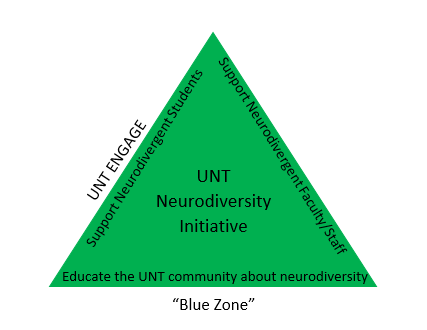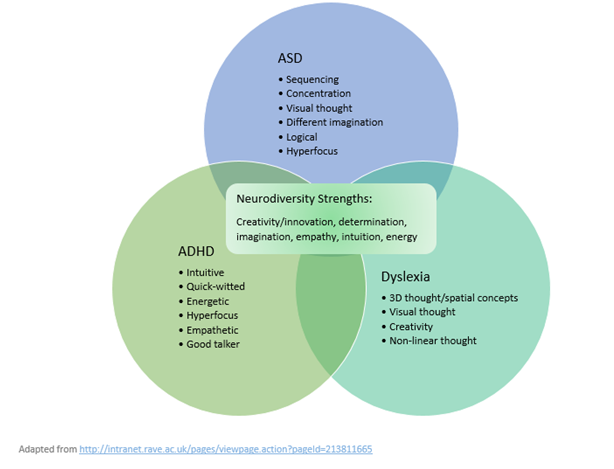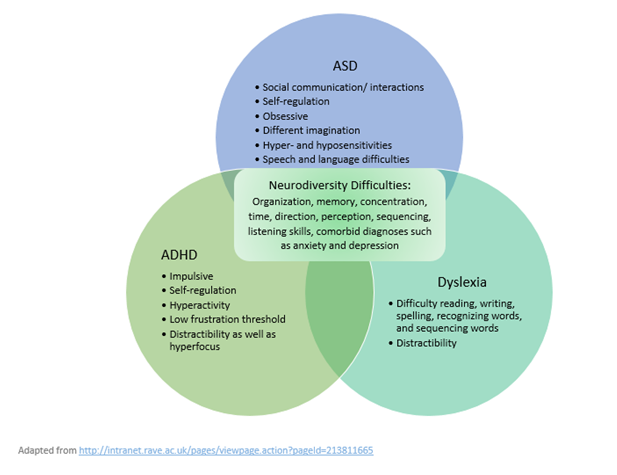Vision and Mission
Mission Statement: UNT will foster an inclusive campus for all through understanding and support of neurodiversity.
Vision Statement: UNT will support students' academic, social and mental well-being through collaborative and individualized services. UNT faculty and staff members will be educated on neurodiversity to foster acceptance, understanding, and inclusion.
The programs of the neurodiversity initiative were developed after being charged by UNT's President Neal Smatresk to create an initiative to support neurodiverse students at UNT. The purpose of the initiative is three-fold: 1) offer holistic support and resources to participating students; 2) increase awareness, understanding, and implementation of effective strategies to support and embrace neurodiversity at UNT; and 3) develop a support system for UNT faculty and staff who are neurodiverse. Separate programs such as UNT ENGAGE and the "Blue Zone" are in development to address each area.

What is Neurodiversity?
Neurodiversity is a term that refers to a natural variation in the "wiring" of the human brain. UCLA Lab School defines neurodiversity as "the range of differences in individual brain function and behavioral traits, regarded as part of normal variation in the human population" (LEAP, 2017). Neurodiversity ranges from being a single variation in thinking or actions (a person who is a little "quirky") to more involved neurological diversity, usually warranting a diagnosis of Autism Spectrum Disorder (ASD), Attention Deficit Hyperactivity Disorder (ADHD), Tourette Syndrome, and/or learning differences such as dyslexia and dyscalculia.
LEAP. (2017, November 02). Retrieved February 14, 2018, from https://www.labschool.ucla.edu/teach/leap/

